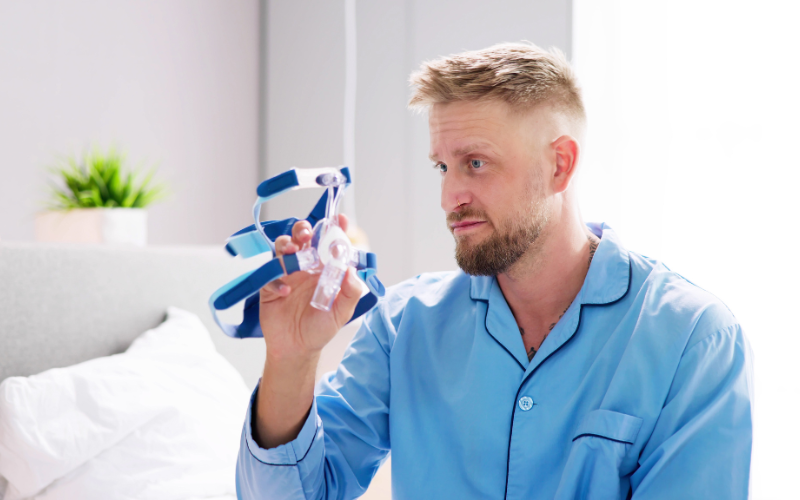Dr. Peter Attia, a renowned physician known for his expertise in longevity, health optimization, and evidence-based medicine, has frequently discussed the importance of sleep in his podcast, writings, and interviews. In his approach to health, sleep is one of the most critical pillars of overall well-being. Dr. Attia emphasizes that poor sleep not only affects cognitive performance and mood but also accelerates aging, weakens the immune system, and increases the risk of chronic diseases.
Here are some of Peter Attia’s key takeaways for getting good sleep, based on his extensive research and personal experience:
1. Prioritize Sleep Consistency
Dr. Attia emphasizes the importance of going to bed and waking up at the same time every day. Consistency in your sleep-wake cycle reinforces the body’s circadian rhythm, which regulates the release of hormones like melatonin that are vital for quality sleep. Whether it’s the weekend or a weekday, keeping a regular schedule helps synchronize your biological clock, leading to better, deeper sleep.
2. Sleep Duration: Aim for 7-9 Hours
While there’s no one-size-fits-all answer, Dr. Attia suggests that most adults need 7 to 9 hours of sleep per night for optimal health. He advises tracking your sleep over time to determine your personal needs, as some people may function well on less, while others may need more. The key is to find the duration that supports peak cognitive performance, mood, and physical health.
3. Sleep Quality Matters as Much as Duration
It’s not just about how long you sleep, but how deeply you sleep. Dr. Attia stresses that quality sleep is characterized by sufficient deep sleep (slow-wave sleep) and REM (Rapid Eye Movement) sleep. These stages are critical for memory consolidation, brain detoxification, emotional regulation, and cellular repair. Monitoring your sleep quality, using a sleep tracker, or even seeking professional testing for sleep disorders (like sleep apnea) can help ensure you’re getting restorative sleep.
4. Avoid Artificial Light Before Bed
Dr. Attia often highlights the negative impact of artificial light, especially blue light from screens (phones, tablets, computers), on sleep quality. Exposure to light in the evening can suppress melatonin production, making it harder to fall asleep. He suggests turning off screens at least 30 to 60 minutes before bedtime and using dim, warm lighting to signal to your brain that it’s time to wind down.
5. Temperature Control
The body’s core temperature naturally drops during sleep, which signals that it’s time to rest. Dr. Attia recommends creating a cool sleeping environment, ideally between 60-67°F (15-20°C), to support better sleep. Many people find that adjusting the room temperature, using lightweight bedding, or cooling sleepwear can enhance sleep quality by promoting this natural temperature drop.
6. Limit Caffeine and Alcohol Intake
Both caffeine and alcohol can negatively affect sleep, albeit in different ways. Dr. Attia advises cutting out caffeine at least 8 hours before bedtime, as it has a half-life of 6-8 hours and can interfere with the ability to fall asleep. Similarly, while alcohol may initially make you feel sleepy, it disrupts the later stages of sleep, particularly REM sleep. Therefore, it’s best to avoid alcohol in the evening for better sleep quality.
7. Exercise, But Timing Matters
Regular physical activity is crucial for sleep quality. Dr. Attia notes that exercise can promote deeper sleep, reduce the time it takes to fall asleep, and improve overall sleep efficiency. However, he advises avoiding intense exercise right before bed, as it can increase adrenaline and make it harder to wind down. The ideal timing for exercise is in the afternoon or early evening, but at least a few hours before bedtime.
8. Create a Relaxing Bedtime Routine
Establishing a pre-sleep ritual helps signal to your body that it’s time to wind down. Dr. Attia suggests incorporating calming activities, such as reading, meditation, or gentle stretching, into your evening routine. He emphasizes avoiding stimulating activities like heavy work, screen time, or intense emotional discussions just before bed.
9. Address Sleep Disorders
If you experience ongoing sleep problems, such as insomnia, snoring, or frequent waking during the night, Dr. Attia advises seeking professional help. Sleep disorders like sleep apnea, which causes breathing interruptions during sleep, are often underdiagnosed but can significantly impair sleep quality and overall health. Addressing these conditions, whether through lifestyle changes, therapy, or medical devices (such as CPAP), is crucial for improving sleep and long-term health.
10. Be Aware of Stress and Anxiety
Chronic stress and anxiety are major contributors to poor sleep, as they can elevate cortisol levels, which interfere with sleep onset and quality. Dr. Attia recommends practicing mindfulness techniques, such as deep breathing, meditation, or progressive muscle relaxation, to reduce stress before bed. Cognitive behavioral therapy for insomnia (CBT-I) is another evidence-based approach for addressing sleep issues tied to stress and anxiety.
11. Monitor and Improve Sleep Hygiene
Dr. Attia advocates for the importance of sleep hygiene, which refers to habits and environmental factors that support healthy sleep. This includes maintaining a clean, quiet, and comfortable sleep environment, free from distractions, noise, and light pollution. He also recommends using earplugs, white noise machines, or sleep masks for individuals who are sensitive to their environment.
12. Avoid Large Meals Right Before Bed
Eating large, heavy meals close to bedtime can interfere with sleep by causing discomfort and indigestion. Dr. Attia advises eating your last meal at least 2-3 hours before sleep, allowing the digestive process to settle. This reduces the chances of heartburn, bloating, or disrupted sleep due to the body still processing food.
13. Track Your Sleep
Lastly, Dr. Attia emphasizes the value of tracking your sleep to understand your sleep patterns and make informed decisions about improvements. Using devices like Oura Rings, Whoop straps, or other sleep trackers can help monitor sleep stages, duration, and quality. This data can help pinpoint specific areas that need attention, such as the need for more REM sleep or the impact of certain lifestyle factors on your rest.
Conclusion
Peter Attia’s approach to sleep optimization is rooted in science and personal experience, emphasizing the profound impact that good sleep has on overall health and longevity. By following his recommendations—such as prioritizing sleep consistency, optimizing the sleep environment, limiting stimulants, managing stress, and addressing sleep disorders—you can significantly improve both the quality and quantity of your sleep. In doing so, you’ll likely experience better cognitive function, improved mood, enhanced physical health, and a greater sense of well-being, all of which contribute to a longer, healthier life.



